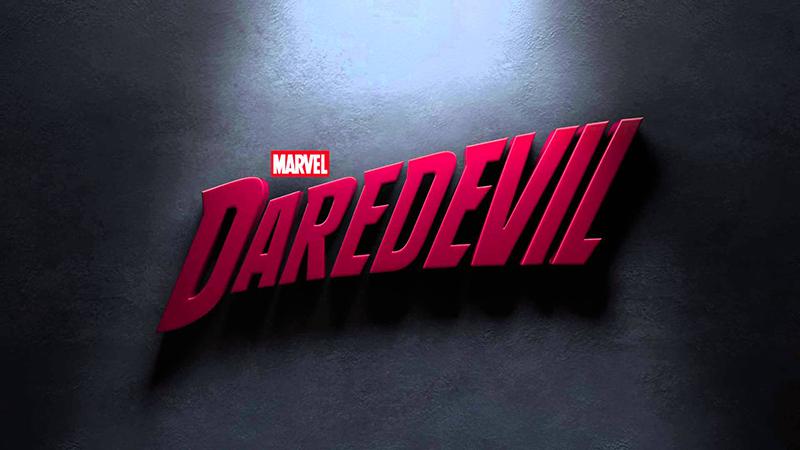By normal TV standards, taking two weeks to finish a season is an impossible pace. By Netflix standards, it’s practically glacial. I’ve finally made it to the end of “Daredevil,” and I have a few thoughts about the season as a whole.
As you’ve probably experienced, it always feels good to be rewarded for sticking with a show through the entire season. I was enthusiastic about this show when I started, but by the seventh episode, a few of the things that I mentioned in my previous review started to grate on me. By the end of the season, though, I think the show does an excellent job of creating and finishing a cohesive narrative throughout the entire season.
Wilson Fisk (Vincent D’Onofrio) is a good villain. Actually, Fisk is a great villain. The dichotomy between the way the powerful rich are trying to save Hell’s Kitchen and the approach Matt Murdock (Charlie Cox) took is clearly defined in the show. Murdock is a working-class kid turned struggling lawyer.
The one thing I noticed more while watching, though, wasn’t the differences between Murdock and Fisk, but the similarities. There are constant parallels between the two characters including the ways their father’s influence them. For instance they both were given alcohol by their fathers at young ages and have fears about becoming their father. Murdock also believes he killed his father in a roundabout way and Fisk actually did kill his father. Their differences are evident in the ways they handle personal relationships- Murdock believes things will get too complicated and advoids intimacy, but Fisk embraces intimacy but his advisers dismay.
It’s an interesting, albeit common, trope to conflate the hero with the villain in these types of stories. It can become convoluted and contrived, but I think the show does a good job of keeping enough distance between the characters in values, motives and approach (Murdock is quiet and calculating while Fisk is bursts of violent emotion), to still hold onto Murdock’s hero journey without getting too bogged down in whether he’s crossing the line. It’s an important distinction between Murdock and Fisk, and it was a smart narrative choice that as close to the line as Murdock gets, he never crosses it.
There were a few moments, mostly when Murdock is alone doing his beating-up-criminals thing and all the other characters are doing something else, that I felt are dead moments in the pacing of the show. The action was fine, and Murdock’s story was underway, but until the last few episodes, Karen Page (Deborah Ann Woll), Foggy Nelson (Elden Nelson) and Ben Urich (Vondie Curtis-Hall) all felt like background characters and didn’t interact with the main narrative enough to feel like the story as a whole was moving forward. But it’s a product of its short time limit that the narrative as a whole comes together nicely at the end.
The integration of Page, Nelson and Urich in the last few episodes is a huge relief and well-executed. I wrote in my previous review I wanted more from the women on the show, and I think the role Page played in the final act was a huge step forward. I was genuinely shocked- and excited about the possibilities going forward- with the huge twist with Page at the end of episode 11. If you’ve seen it, you know what I’m talking about. I think Page and Claire Temple (Rosario Dawson) was extremely neglected and underused in the first half of the season. Even though it was too slow of a buildup, I liked where she ended up at the end. Except for the secrets! Stop telling superhero’s secret identities to literally everyone except the main woman in their lives.
The show did slightly move away from the uniqueness of the fight scenes in the first half. I liked the way they slowed things down and focused on little details. Sounds Murdock hears during a fight are emphasized to illustrate the uniqueness of his ability to fight. It’s understandable because they only have so much time, but I thought “Daredevil” does a good job of differentiating the fight scenes here with other shows, and I was a little disappointed it is abandoned in the latter half of the season.
I’ll end my review with a little bit on Murdock as a main character. I have an issue with the stoic, hyper-masculine superhero that is seen a lot of times in superhero characters. Batman, I’m looking at you. In “Daredevil,” it is refreshing to see the show allow Murdock to express all his fear, hesitation, love, friendship, pain and tears. None of those things takes away from his toughness or resolve. And he doesn’t in any way have to suppress those emotions or close himself off to relationships in order to ultimately take down Fisk. In fact, it is his ability to accept the help of his friends, to not give in to reckless desires (like killing Fisk) and to see his role in the city not as an absolute arbiter of justice but as a balancing cog helping to repair an otherwise damaged criminal justice system, that gives him the ability to save Hell’s Kitchen from Fisk.
Overall, I really enjoyed the ways “Daredevil” challenged, made new and stuck to the tradition of various superhero genre expectations. Hopefully this will be a drive for new and innovative ways to rework other classic characters for the beautiful visual medium we call TV.


